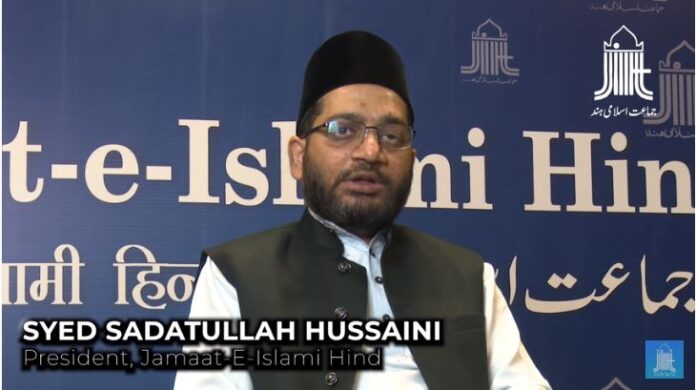India Tomorrow
NEW DELHI—Jamaat-e-Islami Hind (JIH) President Syed Sadatullah Husaini has expressed concern over the government’s move to raise the legal age of marriage for women to 21.
The Union Cabinet has recently approved the introduction of a new bill that would amend the ‘The Prohibition of Child Marriage Act, 2006 (PCMA)’ to raise the legal age of marriage of women from 18 to 21 years.
In a statement, the JIH President said: “We do not think it is a wise move to raise the legal age of marriage for women to 21 in India. Currently, there is a global consensus that the legal age of marriage for women should be 18 years. This is being followed in maximum countries including many developed countries. The government feels that increasing the age to 21 will increase the age of motherhood, lower fertility rates and improve the health of mothers and newborns. However, data does not support this approach. The poor health indicators of mothers and young infants in our country are because of poverty and malnourishment. Raising the age limit will have no bearing on these health indicators if poverty and poor access to healthcare remain at existing elevated levels. Fertility rates are falling even in states with high rates of early marriage. So, assuming that raising the legal age of marriage for women to 21 is going to improve the lot of women is erroneous and not backed by empirical data. Besides, the move goes against the law of nature. It will create psychological, medical, social, and human rights issues. It is evident from surveys that some women who become first-time mothers after the age of 30, might face a lot of problems. The increase in age limit will also impact on the nature of our country’s population, in the long run, which has now more number of younger people. Certainly, the young population is the most valuable asset for a country. Once the proposal becomes law, it will negatively affect the tribal communities and subject them to more harassment at the hands of law-enforcement machinery.”
Mr. Husaini said that the government should not pass the law in haste, but evolve a consensus on the issue by initiating a dialogue with community leaders and subject matter experts from the associated domains.





